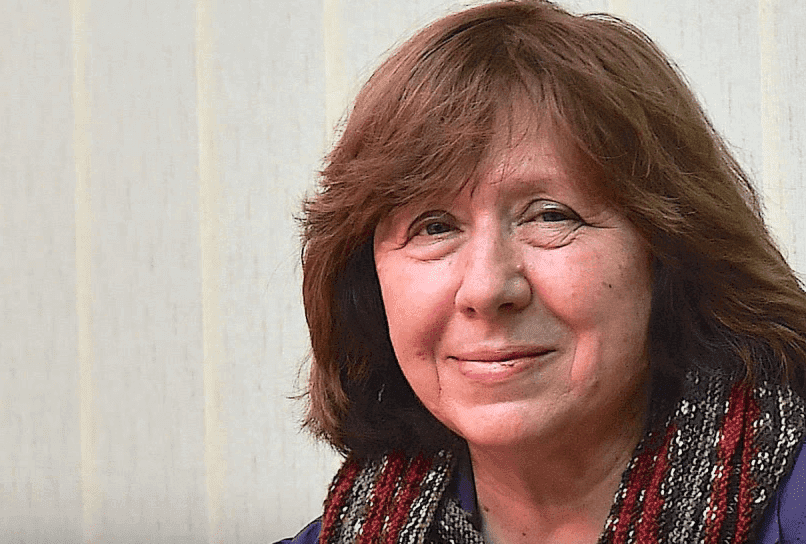Many people around the world had never heard of Svetlana Alexievich before 2015, when she won the Nobel Prize for Literature.
For many it was a big surprise, because it was the first time in history that a journalist became popular through a work based mainly on chronicles.
- Until then.
- The prize had only been awarded to poets and fiction writers.
- But Svetlana Alexievich’s work was inspired by totally real characters and deeds and has portrayed.
- Better than anyone else.
- The reality of Soviet society and its own land.
- Belarus.
“I decided to be a historian of feelings, not an official historian. “- Svetlana Alexievich-
His best-known book, Voices of Chernobyl, has been translated into 20 languages, however, it was not possible to publish it in his home country, as it was forbidden, only this fact gives us an idea of the importance and value of this incredible contemporary writer.
Svetlana Alexievich was accidentally born in a Ukrainian town called Stanislav. We said accidentally because his father, who was a Belarusian soldier, was temporarily rented there.
However, he returned soon after to his native Belarus, where the writer spent his childhood and much of his life.
It is curious that the city of Stanilav, where the writer was born, had such an unstable history. It was part of the Austro-Hungarian Empire, Western Ukraine, Poland, the Soviet Union, Germany and, finally, Belarus.
Today the city doesn’t even exist as before, and it’s called Ivano Frankivsk. The paradox of this is that Svetlana has been working on a genre that some call ‘vocal novel’.
Svetlana was born on May 31, 1948, his father, in addition to his military ties, was a rural producer, like his mother, had a childhood and youth marked by the political instability of his country, later studying journalism at the University of Minsk.
Svetlana Alexievich was influenced by Soviet writer Alés Adam-vich, one of the forerunners of a new genre known as ‘test romance’, ‘collective romance’, ‘epic chorus’ or ‘oratory novel’. definitely a hybrid of journalism and literature.
After working in some newspapers, Svetlana began to face long-term jobs, becoming a tireless traveller, who crossed borders to gain testimonies from survivors of important historical events, so she began to make incredible stories.
In 1985, he published his first book, A Guerra Nu Tem Rosto de Mulher. This book contains many interviews he did with women who had participated in World War II.
For this position, she was expelled from the newspaper for which she worked and accused of playing with the national honor of the Soviets.
After hard work and countless interviews, Svetlana Alexievich published her work Zinky Boys in 1989. The 500 respondents had participated in the invasion of the Soviet Union in Afghanistan.
In this work, Svetlana has reported many cases of human rights violations. As a result of her complaints, she was forced to appear in court.
Her critical attitude towards the Soviet regime led her to seek political refuge in 1991 and she has since been forced to live in several European countries.
In 1997 he published Voices of Chernobyl, which could be the masterpiece of this incredible author, presents the testimonies of the victims of the nuclear accident that occurred in this city, took 10 years to collect the material and his work showed serious failures on the part of the authorities regarding the episode.
Svetlana Alexievich is one of those writers who explores human dramas to the point of their latest consequences.
His works are very moving because they are able to convey the profound paradoxes of great historical events, especially in relation to the Soviet Union and its sphere of influence.
She herself was directly affected by these events, from an early age, when her parents had to systematically flee the war, and as an adult, when her sister died and her mother was blinded by the Chernobyl nuclear accident.
In addition, he had to go through the sufferings of exile and the impossibility of returning to his home country.
Her work has received several awards, but the most important was obviously the Nobel Prize, she was the first (and so far the only) nonfiction writer to achieve this merit. Today, he continues to write and try to understand human evil and goodness.

